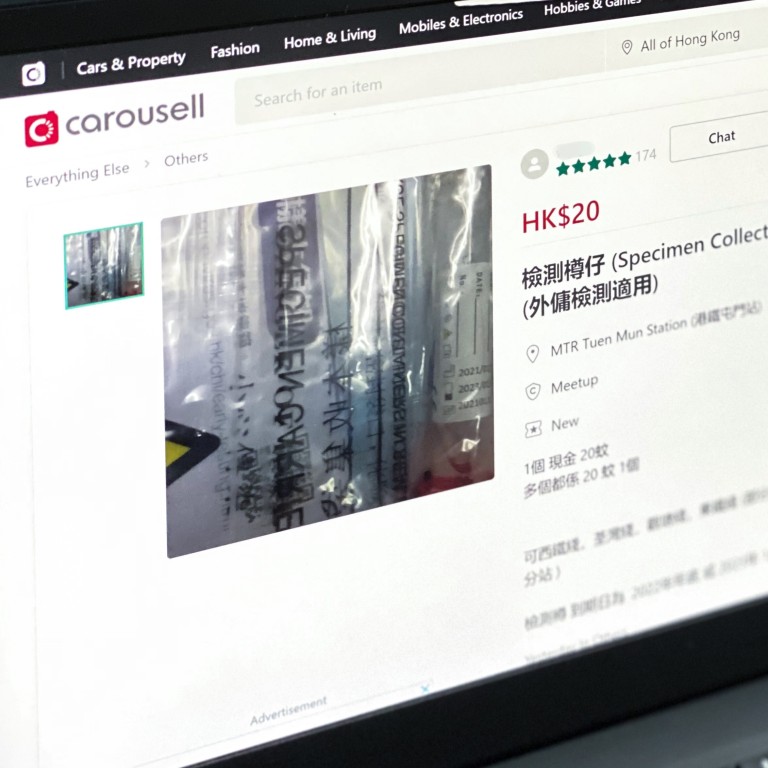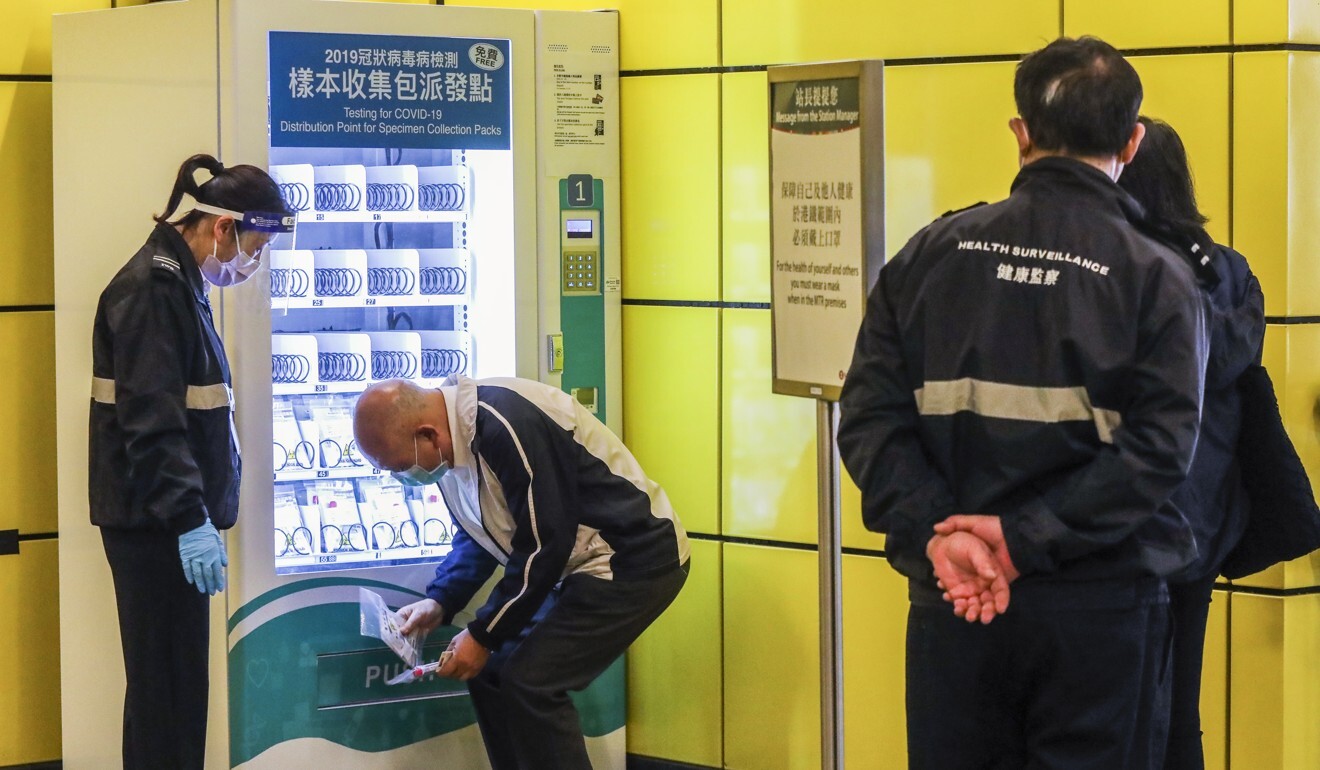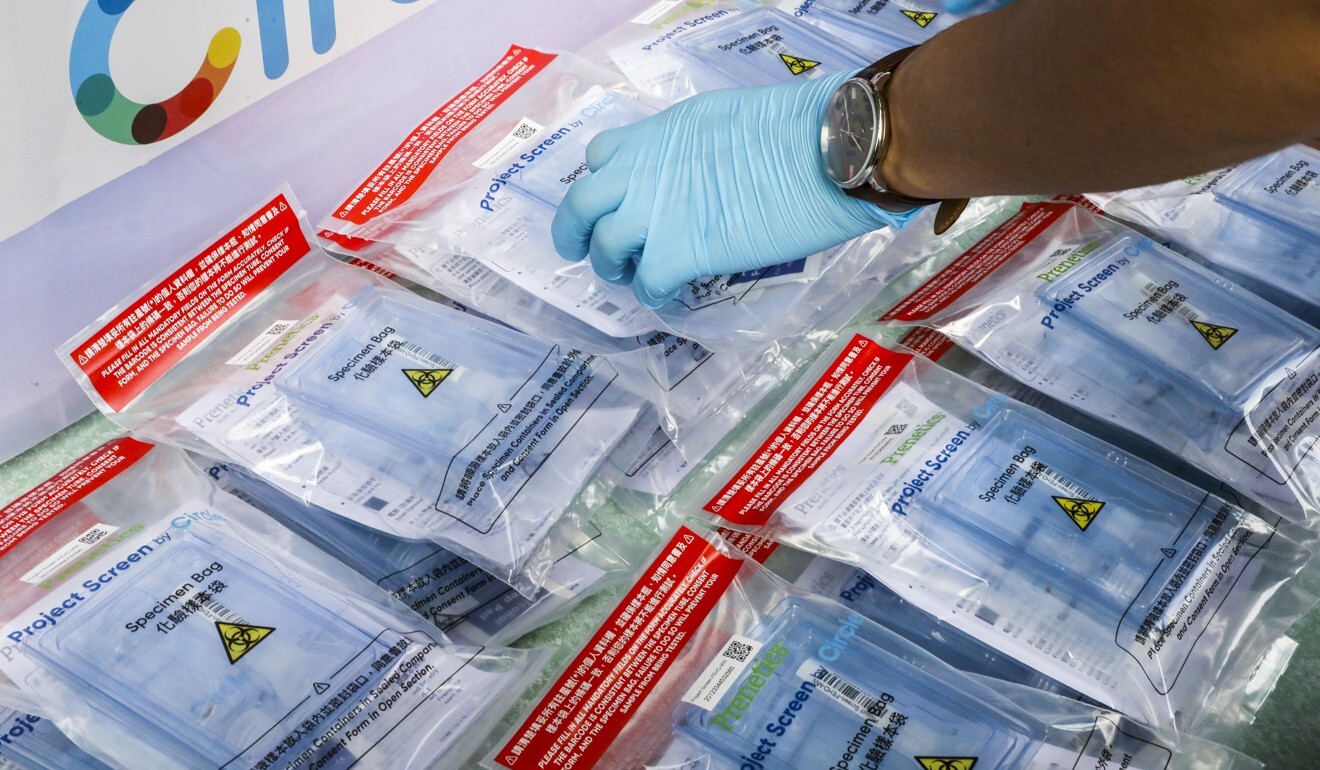
Coronavirus: Hong Kong officials urge public not to sell Covid-19 specimen bottles as they reveal only half are returned for testing
- At least five Carousell accounts found to be selling the collection kits, with some vendors calling the cost a ‘delivery fee’; sales may occupy legal grey zone, barristers say
- With mandatory testing orders increasing, vending machines for the bottles at city MTR stations were completely empty by 10am on Wednesday
Only half of the up to 40,000 Covid-19 specimen collection packs distributed across Hong Kong every day are returned for testing, the government has revealed, after the Post found the free kits were being sold online.
The sale of the packs for as much as HK$30 (US$3.80) each has raised concerns about whether people are hoarding them, amid growing demand fuelled by the increasing number of Hongkongers subject to mandatory coronavirus testing.
Hong Kong experts warn mutated Covid-19 strain could be spreading
A barrister warned on Wednesday that those selling the collection bottles might have committed theft, although there could also be legal grey areas, while the Food and Health Bureau urged the public not to sell or stockpile the kits.
“The government calls on the public and organisations to refrain from collecting more sets of packs than needed so that others in need can also obtain specimen collection packs for testing,” the bureau spokeswoman said, without referring to the online sales.
In recent weeks, fewer than 20,000 kits have been submitted daily for screening in Hong Kong, despite authorities sending as many as 40,000 of the packs into the community for free pickup every 24 hours, according to officials.
Among those being ordered to undergo mandatory testing are domestic helpers and children at schools with respiratory infection outbreaks.

At least five accounts in the past four days listed the collection kits for sale, with prices ranging from HK$1 to HK$30. Some sellers said they were simply charging a fee for “delivery”, while one specified the bottles were “suitable for virus testing for domestic helper groups”.
The free bottles are provided by health authorities at 121 post offices, 20 MTR stations and 47 government general clinics, with each person asked to take only one at a time.
With the city on high alert amid the discovery of new mutated strains of the virus, each of Hong Kong’s 370,000 domestic helpers, as well as those who have visited locations where cases with new variants were confirmed, have been ordered to complete mandatory virus testing.
Evidence of growing demand can be found at Hong Kong MTR stations, where 40 vending machines able to distribute 14,000 specimen bottles a day were completely out of stock by 10am on Wednesday.
Carousell said in a response that it had taken down the relevant listings online and would continue to monitor prohibited items, such as medical devices, including Covid-19 test kits.
A spokesman from the MTR Corporation urged people to abide by the rules and only collect one kit each time, adding they would remind staff to pay attention to those who flouted the rules.

Barrister Johnny So Chun-man said he believed those selling the free specimen collection bottles could potentially be charged with theft, though it would depend on their motive and how the bottles were ultimately used.
“The specimen bottles are specifically for people to get tested. But there may still be grey areas. If the [sellers] claim they are merely charging a delivery service fee of, say, HK$30, for those [who need to get tested], they could argue they are not technically stealing the bottles,” So said.
But So added that even those who purchased the bottles, if aware they were considered government property, could bear legal responsibility for handling stolen goods.
“When members of the public do not buy from them, the [sellers] might stop selling,” he said, urging residents not to make the purchases online.
“If [online purchases] mean other people in need of the [bottles] are not getting them, the government should take administrative steps to stop people from profiting from such a move,” he added.
Barrister Albert Luk Wai-hung, also thought it unlikely sellers and buyers would be convicted of theft, but stressed that medical resources should not be used for profiteering, as hoarding by sellers could affect supply.

